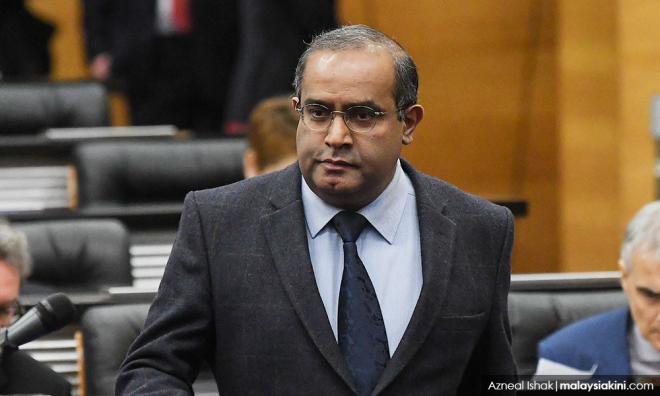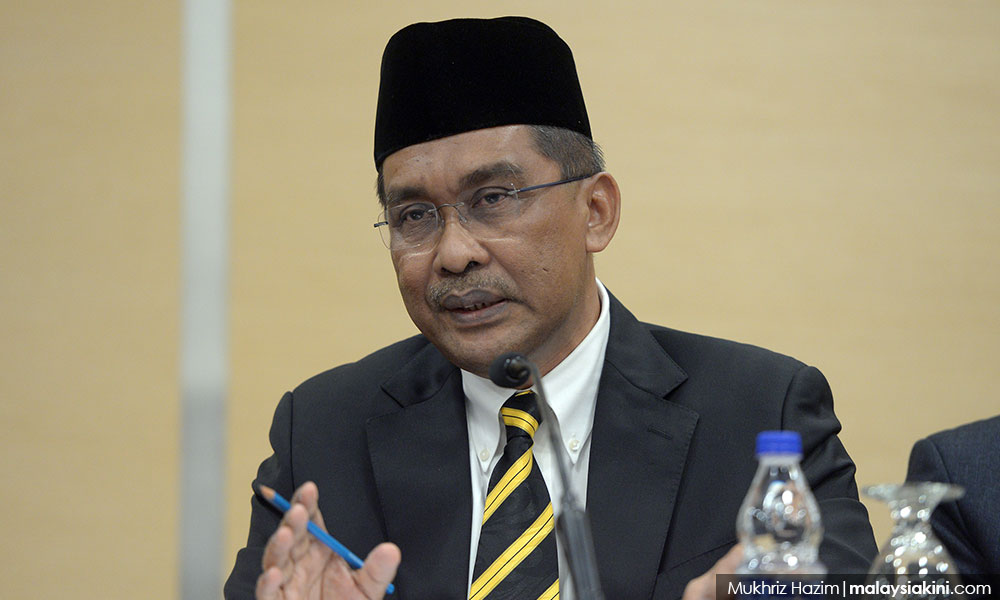
Amid increased scrutiny on the role of politicians in government-linked companies GLCs) under the new Perikatan Nasional government, a prominent economist has argued that there is nothing under the law which makes such appointments illegal.
Universiti Malaya professor of political economy Prof Edmund Terence Gomez (photo, above) said, however, that such appointments, which first gained prominence in the late 1980s during former prime minister Dr Mahathir Mohamad's first stint in power, had over the years been abused to serve the personal vested interests of politicians rather than the public good.
"They are not breaking any laws. So, even if you were to go and make a complaint of this sort to the anti-corruption authority, they will say 'what law have they broken?'
"And that's why (de facto Law Minister) Takiyuddin (Hassan) could come out and say 'politicians are going to be made directors of GLCs' and get away with it," said Gomez, who was a featured guest on an online discussion titled "GLCs: Money Politics in Times of Economic Crisis", which was hosted by civil society organisation Platform for Reform.
He was responding to the discussion's moderator, Azrul Mohd Khalib, who referred to Takiyuddin's reported statement last month and suggested that if such appointments were illegal or blatantly corrupt, actions would have been taken by the relevant authorities.
Since then, Prime Minister Muhyiddin Yassin has announced a list of appointments of PN politicians to head GLCs, a move which Gomez described as an attempt to "consolidate his power base".
"Is this abuse of power? Of course it is," he stressed.
Gomez further noted that Takiyuddin's remark was a reflection of the situation in Kelantan, where his research on GLCs had found a "proliferation of PAS members as GLC directors".

"If he (Takiyuddin, above) felt there is nothing wrong in Kelantan, then why can't it be done at the federal level?" he asked, stressing that there was a serious problem of politicians feeling entitled to GLC positions with financial benefits that could be channelled back to fund their individual or party activities.
Despite there being no law against political appointments to GLCs, Gomez said "abuse of power" remained a pressing issue as the appointed politicians can use the positions in ways that would benefit their vested interests.
For example, he said, a politician appointed to head a statutory body could create even more GLCs with more vacant director positions.
"These directors are politicians and these politicians get a stipend as directors, and this stipend is huge. This stipend not only goes to them but is also channelled to the party's coffers.
'Government funds become a mechanism'
"Government funds become a mechanism to channel funds meant for the poor to the party for party activities," he said.
Citing examples of statutory bodies targeted to implement the government's bumiputera policy, Gomez noted that there is nothing under the law that prevents awarding of concessions to party members who are bumiputeras.
"But are they the ones supposed to get it? No. It is supposed to go to poor bumiputeras. Instead, it has been hijacked by politicians.
"Now that's an abuse of power, but they can't be charged in court because they are implementing public policy," stressed the author of several books on GLC reforms.
Earlier, Gomez stressed that he has always been a proponent of government intervention in the economy, so long as the GLCs - particularly statutory bodies that do not fall under the monitoring of the Securities Commission or Bursa Malaysia - remain on the intended goal of implementing policies that rectify an identified social injustice.
He also argued that major GLCs that are publicly listed companies need not require oversight from politicians, as the operations of the GLCs are under the constant review of financial authorities.
At the same time, Gomez said, the prime minister's role as chairperson of Khazanah Nasional Bhd, now held by Muhyiddin, is an example of how a major political appointment could compromise checks and balances in a GLC.
"With the prime minister as chairperson of Khazanah, are there members of the board who could stand up to the prime minister and say, 'we can't accept this (decision)'.
"Therein lies the problem… those (checks and balances) are what that have been taken away and breed corruption," he said.
In the first two months of taking over power from Pakatan Harapan, Muhyiddin, who holds a wafer-thin majority of 113 MPs in the Dewan Rakyat, has so far approved at least 20 major political appointments, including chairpersons and directors of various GLCs. - Mkini


No comments:
Post a Comment
Note: Only a member of this blog may post a comment.